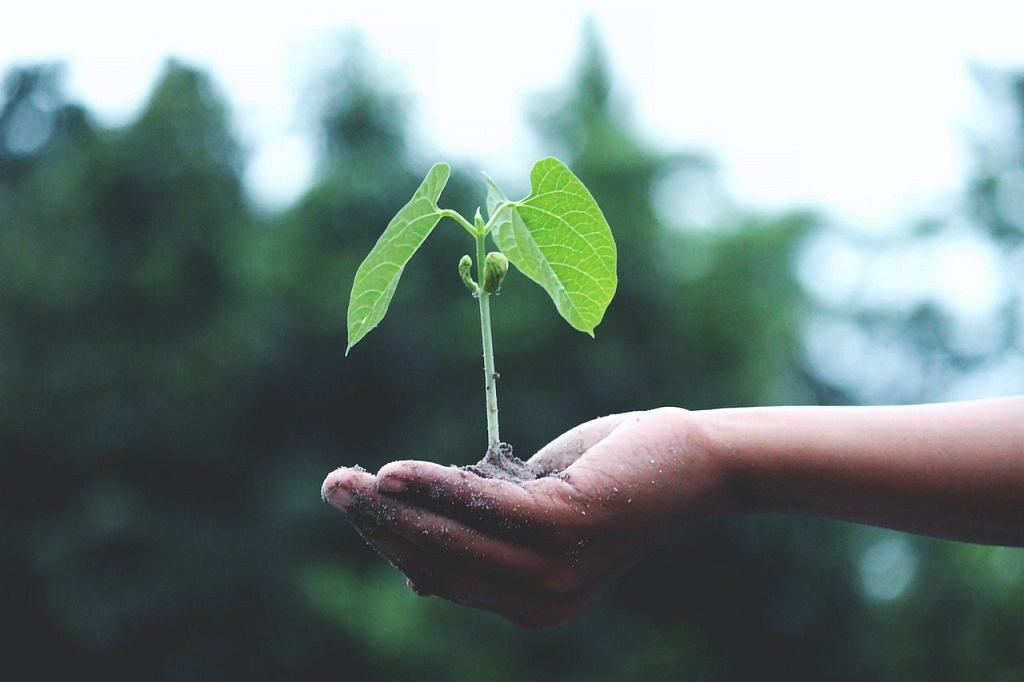
“This, too, shall pass.” That’s the sliver of hope that keeps us all going right now. However uncomfortable, however difficult, this lockdown and crazy pandemic are only temporary. One day, we’ll wake up from this nightmare, and everything will be back to normal.
But will it be our old normal, or a new normal? Just like the 9/11 attacks changed airport security forever, it’s very probable that the COVID-19 pandemic will leave lasting marks. The way we live will be indelibly changed, at least in some form. That’s not necessarily a bad thing —especially when it comes to a topic that’s gaining much needed attention now: sustainability.
The pandemic has been inextricably intertwined with environmental issues from the start. “Human behavior all over the world has made pandemics like this one inevitable,” narrates J.K. Simmons in the Netflix episode Coronavirus, Explained. “Deforestation is bringing more wild animals in contact with more people, and factory farming is pushing animals closer together, giving their viruses more opportunities to combine into one that can infect us.”
The link is not just in the cause, but also the effects. The reduction of land and air pollution with less human activity during lockdown is a clear indication. Some say that the virus is the earth’s way of taking matters into its own hands and reversing the onslaught of human destruction. If so, then this is an effect that we have to perpetuate.
In his book Design Futuring, design theorist and philosopher Tony Fry talks about the need for a culture of Sustainment. It’s a deeper notion than sustainability, an imperative that seeps into not just our products and actions, but the very fabric of our being. “Imperative” is a strong word, but appropriate when we realize it’s our survival as a species that is at stake. We cannot go on living as we do, he argues. Otherwise, we will end up “consuming ourselves to death,” and leaving no future for the generations to come.
This pandemic is a good time to reflect on that. As we suffer the effects of our own irresponsible lifestyles, we must also find the resolve to make the changes necessary to avoid a repeat of this situation. It’s not just a silver lining, but also a meaningful project we can all take on, in our own ways.
There is a Swedish saying that goes, “Dig where you stand.” Today, we can dig where we are quarantined, and begin a culture of sustainment right at home. Here are some starting points:
1 – Calculate your footprint
Map out your own carbon footprint. Use online calculators from the United Nations or the World Wildlife Fund, or simply make your own comparisons.
First, list down the net consumption: your individual or household consumption of energy, water, consumables, and durables, as well as the distances you drive or fly in a month. Next, list your net offset: how much of your waste you recycle or compost, how much green energy you use or buy (solar panels, energy saving bulbs, non-electric household tools, etc.), and any offsetting activities you do, such as planting trees.
You don’t need to formally calculate your net carbon footprint. What’s important is to compare month-on-month for decreases in your net consumption and increases in your net offset.
2 – Shop your own closet
Can’t go out to buy new clothes? That’s great—you may just find that your closet already contains everything you need. Now is the time to do a closet inventory, Marie Kondo style. Put aside what you don’t need (to either sell, donate, upcycle, or recycle later on), and start getting excited about what you do have. Challenge yourself to experiment with clothing combinations to style your “new” work-from-home outfits.
Inspiration abounds on YouTube: Audrey Conye, Alyssa Beltempo, and mademoiselle are some who advocate finding your personal style, and using that to create a minimalist yet meaningful wardrobe.
3 – Grow your own food
Everybody is cooking these days. Go one step further and start growing your own produce. Onions, garlic, and tomatoes are not just the ingredients for your basic sahog or sofrito—they are also among the easiest to plant! Once you’ve flexed that green thumb, you can experiment with some herbs and salad greens, like basil, lettuce, or mint.
The Department of Agriculture thinks it’s the way forward. It’s giving away free vegetable seeds and planting materials to get you started. Take full advantage of that, and you’ll find that a vegetable garden is a gift that keeps on giving.
A final word on starting on your journey to Sustainment: Whenever possible, choose creativity over convenience. It’s much easier to just buy ready-made stuff, and thoughtlessly consume and dispose of them. Sustainment takes time to cultivate, and requires a radical mindset shift. There are many creative ways to use what you already have, grow what you need, and lessen your carbon footprint. Use them not just to survive this lockdown, but to lock in our survival on this planet for the long term.






































